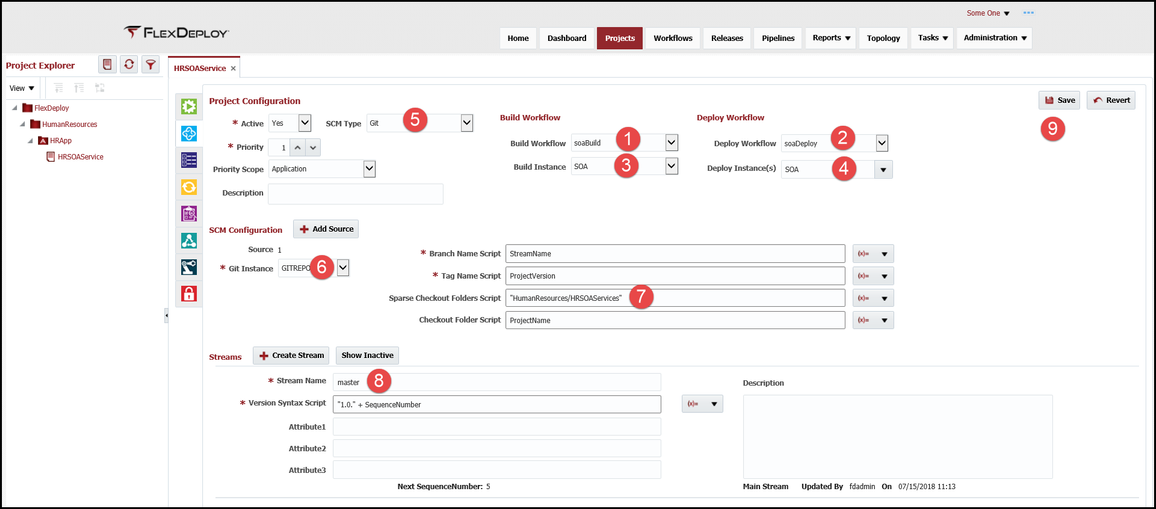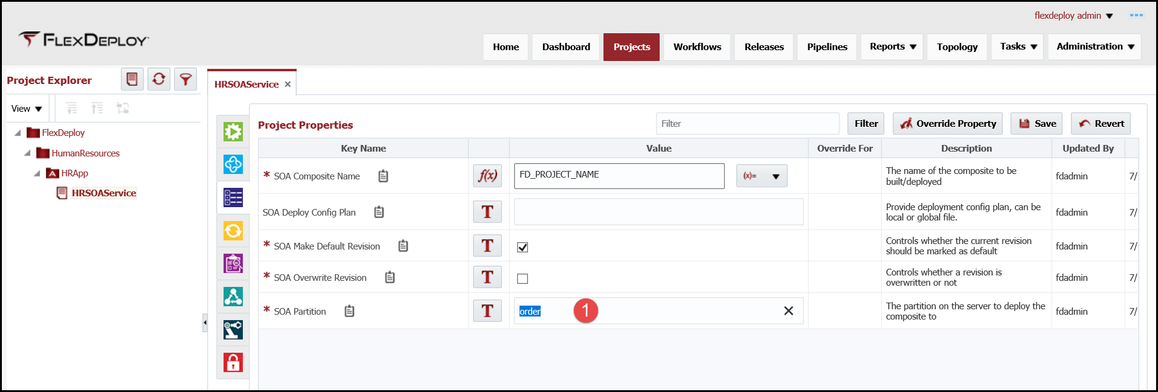Project Creation
At the completion of this section, you will:
- understand the use of projects in the deployment process
- be able to create/modify an composite project
- tie all of previously created components together
- understand that the work to this point is extremely re-usable
A project represents the FlexDeploy component that can be built and deployed. Each composite will be a individual project and be configured with a single build workflow, a single deploy workflow, a single build instance, one or more deploy instances and a single SCM instance.
Projects are viewed through the project explorer by selecting Projects from the menu.
The left pane is the project explorer, which provides the ability to create folders, applications and projects. Folders are used for organization structure and there is no limit to the number of folders created. An application is a special folder and there is only one allowed at the lowest level of the folder structure. Projects can only be created within applications. It is a best practice to name the Project with the same name as the SOA Composite, a FlexDeploy property (ProjectName and FD_PROJECT_NAME) will be automatically set and can be utilized during the configuration. It is a best practice to name Application with the same name as the name of your JDeveloper application. Right clicking on a folder or an application will provide a menu for creation.
Now that the project is created, select the Project Configuration tab and configure the project with the components that were previously created.
- Build Workflow (soaBuild)
- Deploy Workflow (soaDeploy)
- Build Instance (SOA)
- Deploy instance (SOA)
- SCM type (GIT)
- GIT Instance (GITREPO)
Sparse Checkout Folder Script ("HumanResources/HRSOAServices")
- Stream Name (master)
The composite will be pulled from GIT after the repository, defined by the GITREPO instance, is cloned locally. The Branch Name Script defines the branch to utilize within the repository and the Sparse Checkout Folder provides the path to the composite.
The SCM Configuration script entry fields (Branch Name, Tag Name, Sparse Checkout Folders and Checkout Folder) are Groovy script enabled to provide increased flexibility. The double quotes on the Sparse Checkout Folders Script indicate a literal to the Groovy script and will not be replaced. The drop down to the right of the entry field provides the available variables that can be utilized in the Groovy script, which will be replaced with actual values during execution.
Save the configuration, then select the Project Properties tab. These properties are project scoped resources and can be changed per project. The plugin operations that were added to the workflows determine the available project properties that can be configured. The only property that needs to be updated is the SOA partition, which is the organizational structure for composites on the SOA server.
Save the properties. The project is ready to be built and deployed. Each application will be configured in the same manner, showing the re-usability of the components that were created in previous sections.
| Completed 8 of 10 Sections | Continue to Execution | Back to GIT Instance Creation |
|---|
Related content
- style



